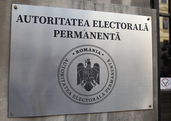The draft law to regulate the state of alert requires that public institutions and national companies with over 50 employees organize staggered schedules for employees, announced, on Monday, the head of the Prime Minister's Chancellery, Ionel Danca.
"An extremely important measure to ensure the efficient organization of work activities for employed personnel - in central and local public institutions, but also in national companies where the share capital is fully or majority owned by the state, with a number of 50 employees or higher, is the obligation to organize individualized work schedules without intervening in this situation on measures relating to matters provided for in the Labor Code, so that between employees there is the existence of an hour interval between the start and the end of the work schedule in a three-hour period. Practically, the authorities' obligation to organize individualized labor programs for employees within these institutions is instituted," Danca said.
Furthermore, in the realm of labor and social protection, the draft provides that the validity of collective work contracts is prolonged for the period of the state of alert, as well as for a period of 90 days after its conclusion.
"During the state of alert the competent authorities may dispose measures of protection and prevention for employees in vulnerable situations," added the head of the Prime Minister's Chancellery.
Furthermore, Danca showed that this draft law provides that institutions and authorities may hire personnel directly depending on the needs determined by the prevention and combating of the situation that generated the state of alert, the personnel being hired for a fixed period of six months.
He indicated the fact that in transportation there are regulations that allow the authorities to impose restrictive measures in what regards the conduct of air, naval, road or rail transport through order of the minister of transport and on the basis of the decision of the National Committee for Emergency Situations.
State of alert: Public institutions, national companies with over 50 employees, obligated to make staggered schedules
Articole Similare

9
ANAR: Completing Mihaileni accumulation remains strategic objective for protecting communities in Hunedoara County
9

12
AEP: Political parties receive over RON 15.4 million in state subsidies in February
12

13
JusMin Marinescu holds meeting with British Ambassador Portam
13

18
ICR: Writer Ana Blandiana on major tour of France - Lyon, Marseille, Aix-en-Provence, Strasbourg and Paris
18

20
EconMin Darau participates in COMPET meeting in Brussels
20

31
Bucharest to host AI & Big Data Conference - Regional AI Valley
31

24
Euro trades at RON 5.0953
24

12
529 companies and sole traders enter insolvency in January 2026
12

20
Photovoltaic park to be built near Henri Coanda Airport on European funds
20

30
Drone shot down near Romanian border amid war in Ukraine
30

25
Albita PTF border police discover cartridges hidden in a bag of sweets on a coach to Italy
25

13
January 2026 general consolidated budget execution ends with 0.04pct of GDP surplus
13

12
Authorities issue 7.8% fewer building permits in January
12



















Comentează